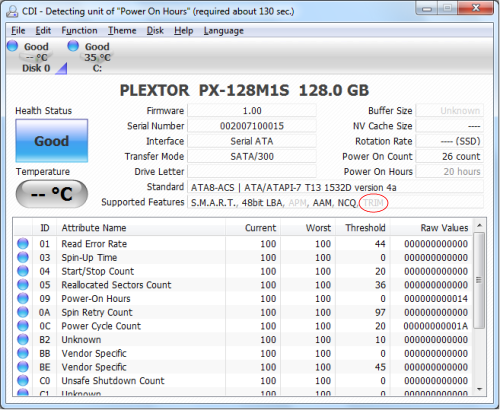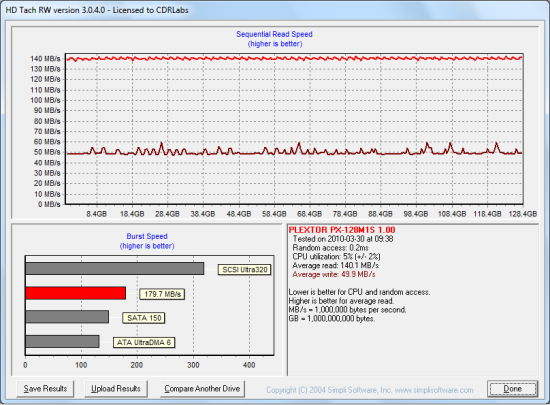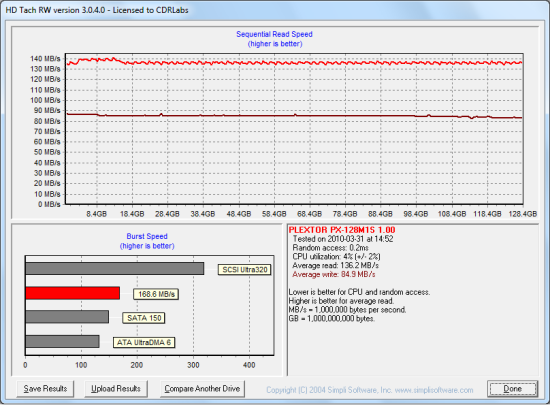Garbage Collection:
While SSD's offer many benefits, there are some downsides to using flash memory. One of the biggest issues people run into is performance degradation. Over time, an SSD will run out of fresh blocks and will have to write over data the file system has marked as deleted. This procedure is very complicated and can slow an SSD's write speeds considerably.
To fix this problem, most manufacturers have added TRIM support to their SSDs. The TRIM command allows an operating system, such as Windows 7, to tell an SSD which data blocks are no longer in use. Using this information, the drive pro-actively erases these blocks and adds them to the free block pool.

Despite the wide spread usage of TRIM, Plextor has opted to use its own garbage collection technique. While the company is a bit vague about how this feature works, they claim that it has been designed to prevent writing performance degradation and sustain a drive's writing speed. They even go as far to say that it their garbage collection technique helps to restore performance to the original condition and maintain the same level of performance.

Plextor PX-128M1S - Dirty

Plextor PX-128M1S - Garbage Collected
To see how well Plextor's garbage collection technique worked, I put the PX-128M1S in a dirty state and then let it sit idle for a few hours. I ran a few benchmarks using HD Tach and after seeing very little performance increase, I let it sit idle over the weekend. Looking at the screenshot above, you can see that while the PX-128M1S's performance was slightly better, it still has a long way to go to reach the factory fresh performance that Plextor advertises.

Plextor PX-128M1S - Post Preformat
The only way I was able to restore the PX-128M1S's performance was to wipe it completely using a utility provided by PLDS. Personally, I don't see this as a viable solution as you will have to backup your data, wipe the SSD and then copy it back.
Final Thoughts:
With the PX-128M1S, Plextor has made its long awaited entrance into the solid-state drive market. While not the fastest SSD available, the PX-128M1S performed as expected throughout most of our tests. Thanks to its Marvell controller and 64MB cache, it was able to read at 130 MB/s and write at speeds in excess of 80 MB/s when in a clean state. The SSD also features Plextor's wear leveling and garbage collection technologies and comes bundled with Acronis True Image. To top it all off, the PX-128M1S is covered by a three year warranty.
That being said, I do have a few issues with the PX-128M1S. First and foremost, is the lack of TRIM support. This feature is found on most new SSDs and, with Plextor's garbage collection technology doing little to offset performance degradation, it was sorely missed. Hopefully Plextor can add support for TRIM or improve their own garbage collection technology in a future firmware update. My other issue is price. Even after Plextor's recent price cuts, the PX-128M1S is still fairly expensive. For less than the $335 Plextor is asking, you can get a faster SSD with TRIM support from a company like Kingston or OCZ.
Highs:
- 128GB capacity
- Well constructed aluminum casing
- 64MB on-board cache
- Low power consumption
- Supports S.M.A.R.T., NCQ and wear leveling
- Includes Acronis True Image
- 3 year warranty
Lows:
- Does not support TRIM
- Garbage collection does not work as well as advertised
- Pricey

